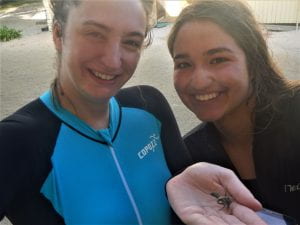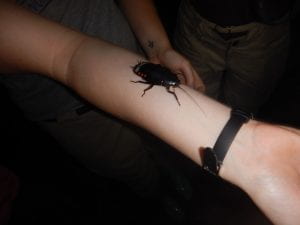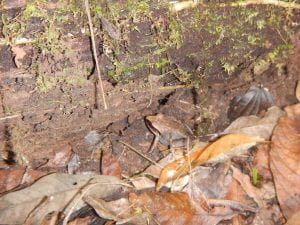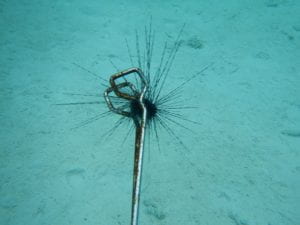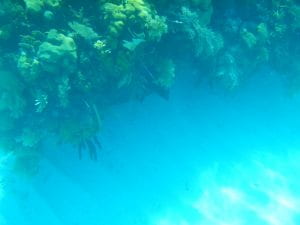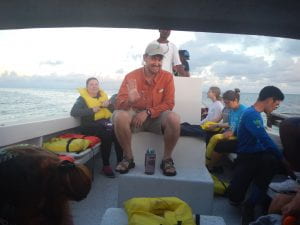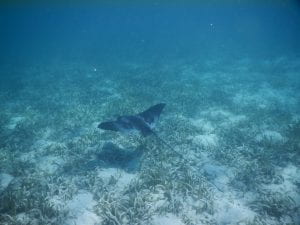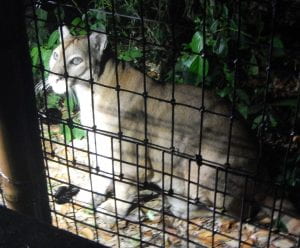In both the rainforest and the reef we observed great amounts of biodiversity. Both these places are located in the tropics which receive more direct sunlight than more northern ecosystems. Having lots of available sunlight allows for more plants and therefore there is more energy available to species that eat plants which could be why we saw so many different levels of herbivores and carnivores. Wow, that’s some science right there.
In both places, trees formed a vital part of the ecosystems (canopy and mangroves) and in both species have developed adaptions to compete and live in close quarters. In both areas we also found endangered species and invasive species, which though the causes for each habitat being endangered differ, both stem back to humans (sigh).
I expected more structure to our research, but was pleasantly surprised when we were allowed to pursue topics that interested us. My favorite parts of the course were mostly in the rainforest- finding tarantulas at night, going into the cave, and getting to see all sort of different beetles, butterflies, and other things we don’t see around Houston. I found on this trip that I do not enjoy underwater research, in particular counting strands of seagrass was a low point, but it was still a good chance to learn what marine biologists do.
The most poignant moment for me on this trip was the trash collection activity on the last day- I was blown away by how much we collected and how much remained. Also in preparing for my presentation, I learned about seagrass and mangroves and how they are actually vital for reefs and land ecosystems. I also went into the trip with a generally negative opinion of ants, but Scott’s passion and fun facts converted me to the cult of the ant. In particular I thought the leaf cutter ants were cool as they have super complex social structures, architecture, and they have little ant highway which somehow manage to be less chaotic than Houston’s own during rush hour.
Species seen:
Amphibians:
Morelet’s Tree Frog, Mexican Tree Frog, Broad Headed Rain Frog, Campbell’s Rainforest Toad, Gulf Coast Toad
Crustaceans:
Orange-tipped hermit crab, green climbing gall crab, giant hermit crab, furcate spider crab, spiny lobster, miscellaneous shrimp, blue land crab, blue land hermit crab

